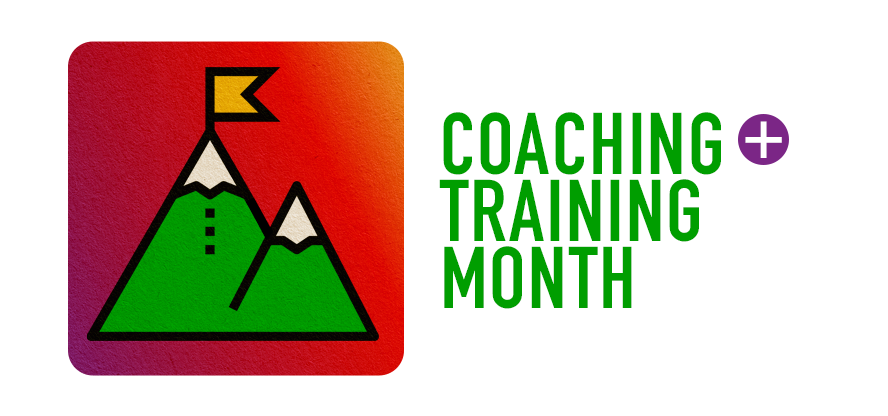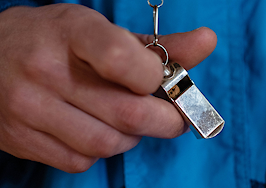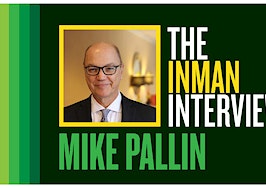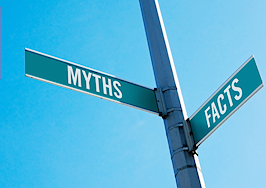 In today’s virtual, work-from-home environment, agents are seeking training and coaching in entirely new ways. In August, we’re laser-focused on what defines good coaching today and how to get the most out of it.
In today’s virtual, work-from-home environment, agents are seeking training and coaching in entirely new ways. In August, we’re laser-focused on what defines good coaching today and how to get the most out of it.
When real estate coach Greg Hague started out as an agent in 1976, he learned what he calls “traditional real estate” from his dad, who owned a brokerage in Cincinnati, Ohio, where Hague grew up.
He loved the work so much that even though he trained as a lawyer and passed the bar, he stayed in real estate. He moved to Arizona in 1981, in part to follow a favorite real estate coach, Tom Hopkins. Hague found success in what he learned from Hopkins and other coaches and founded his Scottsdale, Arizona-based boutique luxury brokerage Hague Partners in 1998. He founded his coaching company, Real Estate Mavericks, in 2013, and now coaches agents throughout the U.S. and five other countries.
In a phone interview with Inman, Hague said he’s been a lot busier during the pandemic and has come up with a selling technique that he says competes in terms of convenience and sales price with the iBuyers so plentiful in the Phoenix area.
This interview has been edited and condensed for clarity.
Inman News: What is your coaching philosophy?
Greg Hague: My coaching philosophy is very specific. First of all, I only coach list-side real estate. I do not coach buyer-side at all. My belief is that buyers will gravitate to who has the listings. I do five coaching calls a week, three actual coaching calls and two webinars every week live, not to mention hundreds of videos.
No. 2, I believe in having a unique value proposition. When you’re list-side coaching, you’re teaching people how to get listings and then, of course, get them sold. The product isn’t the home. The product is what you offer sellers and what you do to get the home sold.
I believe that Realtors have pretty much been selling homes through the same process for 50 years: You list a home, you market it, you put up a sign and you show it one at a time. And your vision is to sell it over three or four or five months. My dad did it. I did it.
I teach my agents that when you’re presenting your different homeselling formula to sellers, you must get your ego subordinated. You are selling a product, a process, over yourself. Most agents go in and sell themselves. My agents will rarely even mention how long they’ve been in the business. I tell them don’t even bother because people don’t care. What they care about is what you’ve got that they can see and intuitively understand is going to get a better result for them. Result means more convenience, higher price, and in the world of COVID, it also means a higher degree of safety.
IN: How many clients do you typically have at a time?
GH: I have two levels. I have 91,000 agents that are on my free mailing list. Then I have agents who pay an upfront initial fee and then a monthly fee. Right now I have just under 500 agents who are in my absolute core coaching. It’s just one coaching level. There’s no multiple tiers.
All agents get access to three basic things: a content-rich learning management system that takes them through a certification process for my program where they get certified to offer the program, an online marketing library of materials that they can use templates for everything from print ads and community newspapers to the typical door hangers, and social media videos, all of which promote the program I have. I have hundreds of thousands of dollars of videos, including 43 TV commercials in this marketing library. We continue to update that monthly.
IN: In an email to me, you said, “I do not coach traditional techniques, particularly in the midst of the pandemic.” Could you elaborate on that?
GH: The way we sell homes is that once the seller has listed they do not show the home one at a time. Typically, they will list a home. They will market it for, let’s say, two weeks. And then they do what we call compressed showings.
They have a launch, which is on a Saturday, where all agents with buyers come generally within a 90 minute-window where people are scheduled. It’s not an open house. Everybody who reaches out, I tell them that this home is first available to be seen on that specific Saturday. Then Sunday is the day where everybody can get questions answered, etc. And Monday at 4 p.m. is typically the deadline for offers. We call it our 72-hour launch weekend.
There’s typically way more than one offer. Those are presented to the seller and negotiation takes place. The sellers love this because they’re not inconvenienced by multiple one-off showings on short notice and in a COVID environment where people are particularly concerned.
All of my agents have a cleaning service come in, at their expense, immediately after the 90 minutes or however long it takes, to clean the home and wipe down all surfaces. They do not let more than two people in the home at the same time so that you don’t have a flood of people in there — that would not be responsible. They do require that people wear masks. These are all by appointment, so if more people arrive at a given time, they ask them to stand outside and maintain social distancing.
All the agents are instructed to have doors open, drawers slightly open, so that buyers are asked not to touch surfaces when they go through. And everything should be totally visible without touching.
Sellers love this. It’s one, two, three hours when they need to be gone. They know that this is going to be handled responsibly. They can come back and see the cleaning service in there wiping it down. It really makes sellers feel comfortable that this is being done in the best way it could to preserve their health, to decrease the probability as much as possible that they could be exposed to COVID. This process is big difference No. 1.
Big difference No. 2: Realistically, in this business, some buyers can’t wait. If I were launching your home two weeks from now, there could well be a buyer who’s only in town for a few days, and I wouldn’t want you to lose that buyer. There could be some really good buyers who simply want to see it now or they’re going to buy something else.
Because of COVID, we developed a program. I brought some of the top video production people in the country onto my webinars back in March and taught all my agents how to use their smartphone to produce really good videos on homes.
I even have the developer of one of the coolest phone apps you’ve ever seen, Dubl, which allows picture-in-picture videos. He actually got on and showed my agents how to do video home tours with them up in the right frame talking and the home out in the main picture. It’s really cool.
But here’s the magic to it. How do you break the barrier of getting a buyer comfortable buying a home via video? We say: “We know the launch is in two weeks, but we’ll send you a video and our sellers will entertain an offer from your buyer. The sellers will agree to negotiate and cancel the launch coming up if they come to a price in terms of agreement with your buyer. Then the next day once your buyer has put it under contract, we will give them an approval walkthrough and we either tear up the contract or they put up earnest money.”
It has been huge for us. In surveys, my agents are selling over 50 percent of their homes now prior to the launch.
Very few buyers have have bailed after the approval walkthrough, because in today’s world, you can do videos that show every nook and cranny of the home. The agents described the home, you can drive by them, you can look at them online. So it’s a rarity when there’s something a buyer sees at the home that was unexpected.
IN: So the pandemic inspired you to create this new selling technique?
GH: Absolutely. We had nothing like that prior to March, and boy, does it work. This is really a better way to sell homes overall — forget the pandemic.
If every agent did this, buyers wouldn’t have to drive around looking at homes — they can look at homes in the comfort of their home by video, negotiate in the comfort of their home and then know that they’re not really committed to put up earnest money or pay for an inspection until they do the approval walkthrough. That really makes buyers feel special.
From the sellers’ perspective, oh my gosh, how much more convenient can you get? Forget COVID, it’s just more convenient for sellers and no downside to buyers. This really could be a huge step forward in improving the homeselling process that traditional agents can implement, too. Anybody could do it.
IN: It seems like it could rival what the iBuyers are offering in terms of convenience.
GH: Totally. That’s one of our big selling propositions. I have told my agents that the traditional independence of Realtors is being challenged in a way that’s never ever been in real estate.
I view iBuyers as competitors to the traditional real estate model. You need to have this iBuyer-level of convenience to compete with them. And that’s exactly what this does.
For a lot of the appointments our agents go out on, they’re competing with the iBuyers — Offerpad, Opendoor, Zillow Offers. What we tell sellers is this: “Why would you sell to an iBuyer who is buying your home below to sell it high? They have to; it’s not a criticism. You can’t pay full retail value, pay closing costs, carry a home, and then sell it and not have some margin. So why would you do that when we can give you the same level of convenience but give you a retail price, rather than us buying it wholesale and selling it to retail?”
A big part of my coaching is directly being able to beat out the iBuyers. I think they are one of the most serious challenges to traditional real estate.
IN: Is there anything you’d like to add about how your job has changed as a coach during the pandemic?
GH: (Laughs) Yeah, I’m a lot busier. Come March, when this came to the forefront, it’s like my workload tripled. But I love it, so it’s all good. It’s a good time in my life.
Email Andrea V. Brambila.
Like me on Facebook | Follow me on Twitter













